Related Research Articles

Michael Andreas Helmuth Ende was a German writer of fantasy and children's fiction. He is known for his epic fantasy The Neverending Story ; other well-known works include Momo and Jim Button and Luke the Engine Driver. His works have been translated into more than 40 languages and sold more than 35 million copies.

Der Struwwelpeter is an 1845 German children's book written and illustrated by Heinrich Hoffmann. It comprises ten illustrated and rhymed stories, mostly about children. Each cautionary tale has a clear moral lesson that demonstrates the disastrous consequences of misbehavior in an exaggerated way. The title of the first story provides the title of the whole book. Der Struwwelpeter is one of the earliest books for children that combines visual and verbal narratives in a book format, and is considered a precursor to comic books.

Hans Fallada was a German writer of the first half of the 20th century. Some of his better known novels include Little Man, What Now? (1932) and Every Man Dies Alone (1947). His works belong predominantly to the New Objectivity literary style, a style associated with an emotionless reportage approach, with precision of detail, and a veneration for 'the fact'. Fallada's pseudonym derives from a combination of characters found in the Grimm's Fairy Tales: The titular protagonist of Hans in Luck, and Fallada the magical talking horse in The Goose Girl.
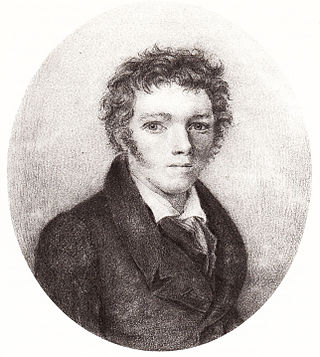
Wilhelm Hauff was a German poet and novelist.

Moses Joseph Roth was an Austrian-Jewish journalist and novelist, best known for his family saga Radetzky March (1932), about the decline and fall of the Austro-Hungarian Empire, his novel of Jewish life Job (1930) and his seminal essay "Juden auf Wanderschaft", a fragmented account of the Jewish migrations from eastern to western Europe in the aftermath of World War I and the Russian Revolution. In the 21st century, publications in English of Radetzky March and of collections of his journalism from Berlin and Paris created a revival of interest in Roth.

Wolfgang Staudte, born Georg Friedrich Staudte, was a German film director, script writer and actor. He was born in Saarbrücken.

Grimms' Fairy Tales, originally known as the Children's and Household Tales, is a German collection of fairy tales by the Brothers Grimm, Jacob and Wilhelm, first published on 20 December 1812. Vol. 1 of the first edition contained 86 stories, which were followed by 70 more tales, numbered consecutively, in the 1st edition, Vol. 2, in 1815. By the seventh edition in 1857, the corpus of tales had expanded to 200 tales and 10 "Children's Legends". It is listed by UNESCO in its Memory of the World Registry.
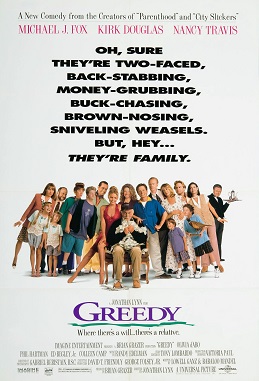
Greedy is a 1994 American comedy film directed by Jonathan Lynn, written by Lowell Ganz and Babaloo Mandel, and starring Michael J. Fox, Kirk Douglas, Nancy Travis, Olivia d'Abo, Phil Hartman, Ed Begley Jr., and Colleen Camp. It tells the story of an aging wheelchair-using scrap metal tycoon whose younger relatives compete to get the inheritance when he dies.
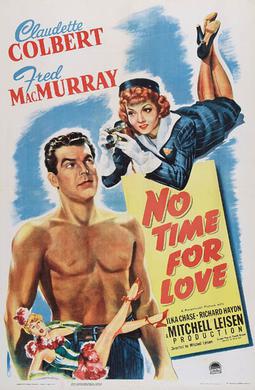
No Time for Love is a 1943 American romantic comedy film produced and directed by Mitchell Leisen and starring Claudette Colbert and Fred MacMurray. Written by Claude Binyon, Robert Lees, and Frederic I. Rinaldo, the film is about a sophisticated female photographer assigned to photograph the tough "sandhog" construction workers at a tunnel project site. After saving one of the sandhogs from a fatal accident, she becomes attracted to this cocky well-built man they call Superman. Unsettled by her feelings, she hires the man as her assistant, believing that her attraction to him will diminish if she spends time with him. Their time together, however, leads to feelings of love, and she struggles to overcome her haughtiness and make her true feelings known.
Friedrich Gnaß was a German film actor. He appeared in 53 films between 1929 and 1958.

Trude Hesterberg was a German film actress. She appeared in 89 films between 1917 and 1964.
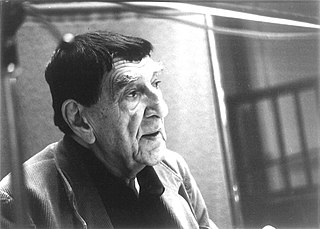
Wolf Kaiser was a German theatre and film actor. He grew up in Switzerland, where he studied chemistry and physiology. In 1937 he was deemed unfit for service in the Wehrmacht, and then went to Berlin where he trained as an actor.

Rudolf Hans Bartsch was an Austrian military officer and writer.
The Kaiser's Lackey is a 1951 East German film directed by Wolfgang Staudte, based on Heinrich Mann's 1918 satirical novel by the same name.
Cengaver Katrancı was a Turkish boy, who lived in West Berlin, in district of Kreuzberg. He drowned in the river Spree, which at the time and in this place was a border between East and West Berlin. In view of the circumstances surrounding the accident Cengaver Katrancı is one of the youngest victims of the Berlin Wall's existence.
Erwin Moser was an Austrian children's and young adult books' author and illustrator. He is best known for his children's book series Manuel & Didi, which he illustrated himself, using a text comics format.

Twisted: The Untold Story of a Royal Vizier is a musical with music by A. J. Holmes, lyrics by Kaley McMahon, and a book by Matt Lang, Nick Lang, and Eric Kahn Gale. It was produced by StarKid Productions.
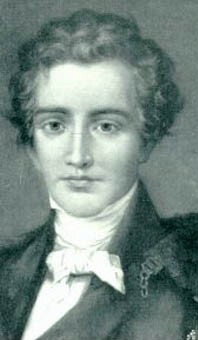
The story of Little Muck is a fairy tale written by Wilhelm Hauff. It was published in 1826 in a collection of fairy tales and tells the story of an outsider called Little Muck.
References
- 1 2 "List of the 50 highest-grossing DEFA films". www.insidekino.de. Retrieved 9 May 2020.
- ↑ IMDb entry